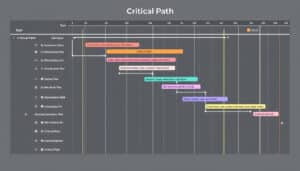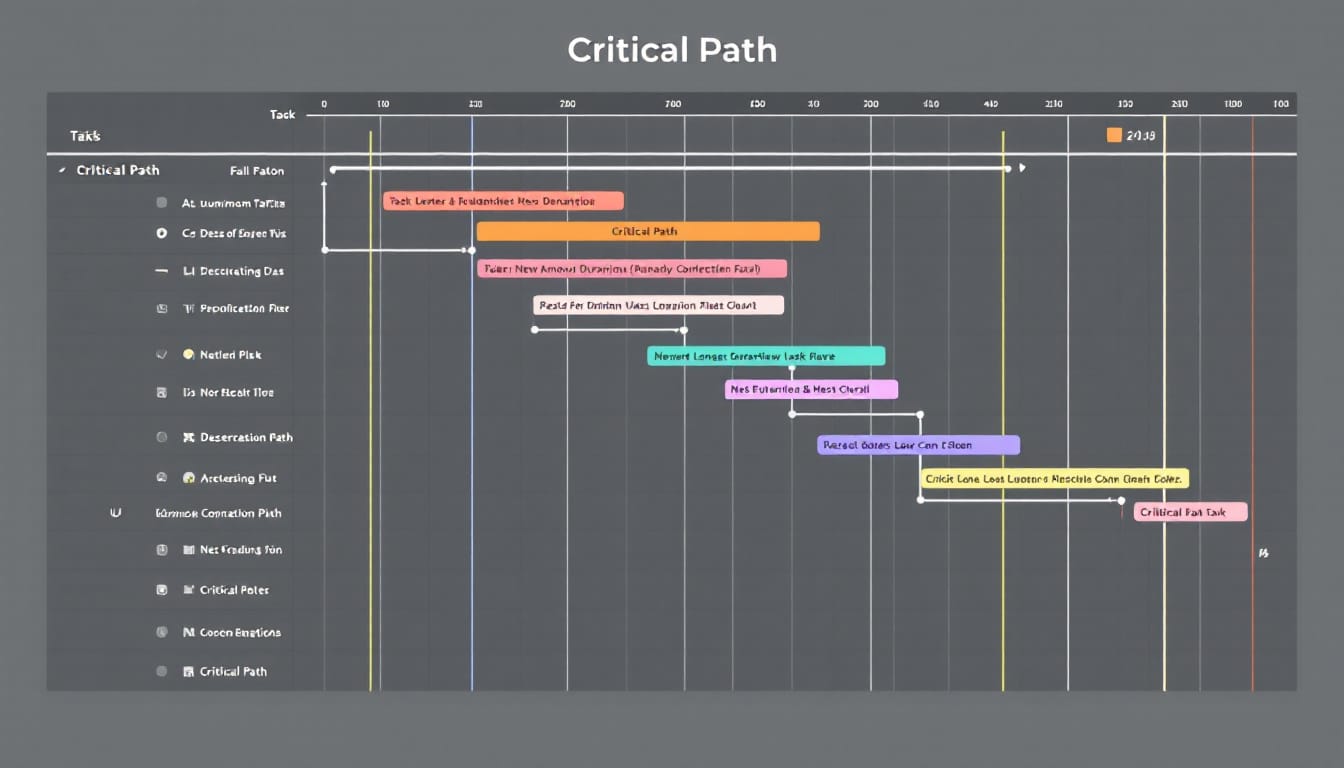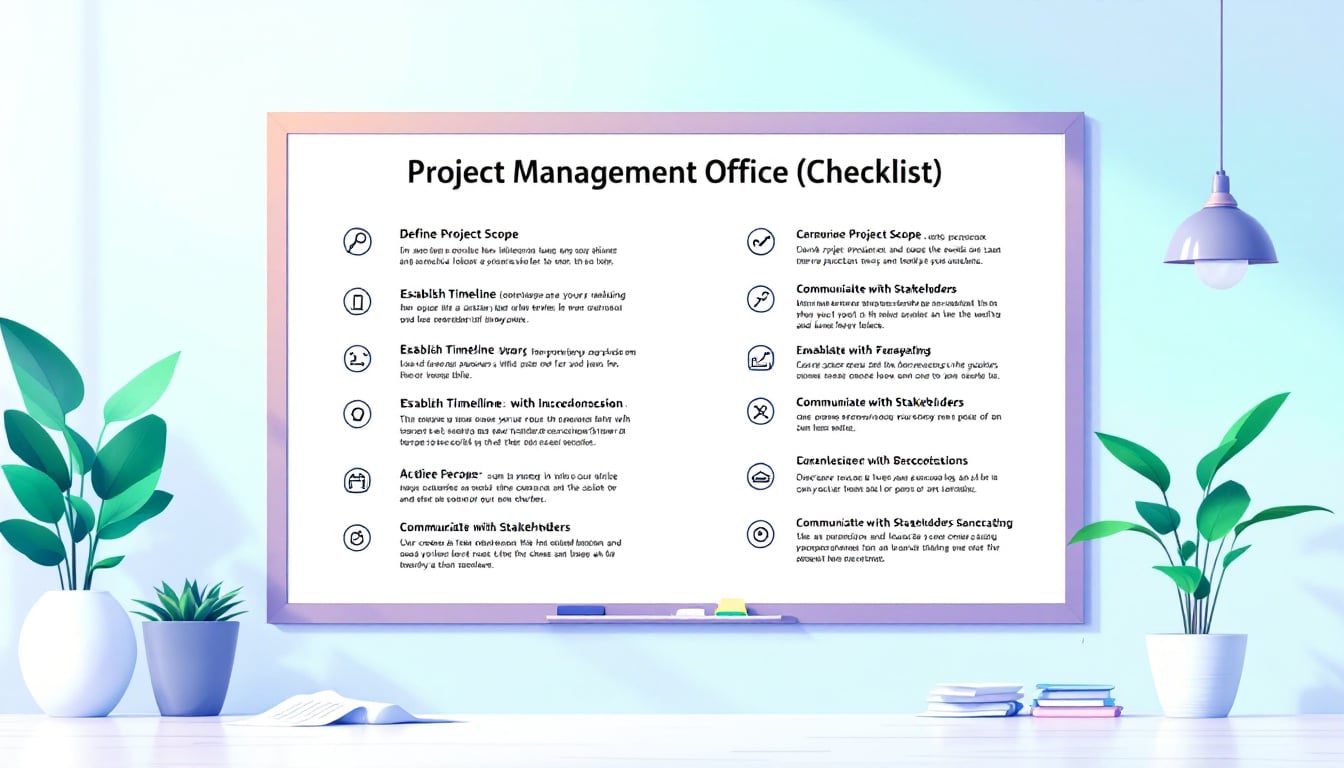The project manager is the beating heart of any ambitious business. Their ability to orchestrate various elements often determines the success or failure of a project. Mastering planning, budgeting, and coordination, they transform ideas into concrete achievements.
With a clear vision and sharp skills, the project manager navigates through challenges with ease. They use specialized tools like Gantt charts and Kanban boards to track progress in real-time. Leadership and communication are at the heart of their interactions with teams and stakeholders. With their certifications and expertise, they ensure that each project meets the deadlines and allocated budgets.
🔥 Nous recommandons Ideamap
Ideamap est l’outil idéal pour un brainstorming ou un projet collaboratif. Grâce son interface facile et à ses fonctions IA, Ideamap booste votre créativité tout en favorisant une meilleure organisation de vos idées pour atteindre vos objectifs.

identify the essential roles of a project manager
To create the ideal profile of a project manager, it is crucial to understand the essential roles they must assume within an organization. A project manager is the central pillar that ensures the coordination and success of initiatives undertaken. They are responsible for the planning, execution, and finalization of projects while respecting the deadlines and budgets allotted.
First of all, the project manager defines the objectives and the deliverables of the project in collaboration with stakeholders. They establish a detailed project plan which includes a timeline, resource allocation, and key milestones to be achieved. Additionally, they are responsible for managing potential risks by anticipating obstacles and developing mitigation strategies.
Another crucial role is communication. The project manager must ensure smooth communication between different team members, superiors, and external stakeholders. They must be able to motivate their team, resolve conflicts, and ensure that everyone understands their responsibilities and tasks.
In addition, they oversee the allocation of resources, ensuring that the right skills are available at the right time. They use project management tools such as Gantt charts or Kanban boards to track progress and adjust plans if necessary. To delve deeper into the importance of roles and responsibilities, check out this article on roles in Prince2.
what skills are essential for a project manager
The skills of a project manager are varied and must cover both technical and interpersonal aspects. A solid mastery of project management methodologies is paramount. Whether it’s Agile, Scrum, or Waterfall, the manager must know how to adapt the most suitable methodology to the project context.
Time management is also essential. A good manager must be able to plan tasks effectively, establish priorities, and ensure that deadlines are met. This requires excellent organizational skills and priority management.
In terms of interpersonal skills, communication is at the core of the role. The manager must be able to clearly convey information, negotiate with stakeholders, and resolve conflicts within the team. Leadership is also crucial, as it enables motivation and drives the project toward its goal.
Finally, risk management is a key skill. Identifying, assessing, and managing potential risks minimizes the negative impacts on the project. To learn more about project quality management, check out this quick guide.
how to assess the experience and qualifications of a project manager
Evaluating the experience and qualifications of a project manager is essential to ensure they possess the necessary skills to successfully carry out the organization’s initiatives. An initial step involves examining the candidate’s professional background. Look for previous successful experiences in managing similar projects in terms of complexity and industry.
Past achievements are also a good indicator of the manager’s ability to meet their objectives. Ask questions during interviews about specific projects they have led, the challenges faced, and the solutions implemented. This allows for measuring not only their technical expertise but also their ability to solve problems and innovate.
Certifications play an important role in assessing qualifications. Recognized certifications such as Project Management Professional (PMP) or Certified Associate in Project Management (CAPM) attest to thorough training and international recognition of skills. For a deeper exploration of project management certifications, visit this article on PRINCE2.
Furthermore, it is important to consider technical skills and proficiency in project management tools. Familiarity with software like ProjectManager or JIRA can greatly facilitate task management and collaboration within the team.
Finally, do not forget to evaluate the candidate’s soft skills, such as effective communication, flexibility, and resilience. These qualities are often decisive for success in a dynamic and ever-changing project environment.
which certifications enhance a project manager
Certifications are valuable assets for a project manager, as they attest to their mastery of methodologies and best practices in the field. Among the most recognized certifications is the Project Management Professional (PMP) awarded by the Project Management Institute (PMI). This certification is widely respected and demonstrates deep competence in project management, covering both traditional and agile methodologies.
A popular alternative is PRINCE2 (PRojects IN Controlled Environments), particularly favored in Europe. It provides a rigorous framework for project management, with well-defined principles, themes, and processes. For a more detailed understanding of PRINCE2 certifications, consult this explanatory article.
For beginner professionals, the Certified Associate in Project Management (CAPM) is an excellent entry point. It validates basic knowledge of project management and can serve as a stepping stone towards the PMP. Other certifications, such as Certified Scrum Master (CSM), are ideal for those wishing to specialize in agile methodologies.
Certifications offered by the Global Association for Quality Management (GAQM), such as Associate in Project Management (APM) or Professional in Project Management (PPM), are also recognized and can cater to various levels of experience.
It is important to choose a certification that aligns with your career goals and the specific requirements of your industry. The PMP certification is often regarded as an industry standard, but other certifications may offer specific advantages based on your organization’s needs.
what personal qualities make a difference in a project manager
Beyond technical skills and certifications, certain personal qualities distinguish an exceptional project manager. Leadership is a prime quality. A good manager inspires and motivates their team, creates a positive work environment, and encourages collaboration. They know how to delegate effectively while maintaining sufficient oversight to ensure that objectives are met.
Problem-solving is another key skill. Projects often face unexpected challenges, and the ability to quickly identify issues, analyze root causes, and develop effective solutions is essential for keeping the project on track.
Flexibility is also indispensable. A project manager must be able to adapt to changing priorities, new client requirements, or market modifications. This adaptability allows for quick and appropriate responses to unforeseen events.
A good communication is essential. The manager must be able to clearly convey information, actively listen to the concerns of the team and stakeholders, and ensure smooth communication at all levels of the project. Effective communication minimizes misunderstandings and promotes better collaboration.
Finally, stress management is a often underappreciated but crucial quality. Project managers often work under pressure with tight deadlines and high expectations. The ability to stay calm, manage time effectively, and maintain a positive attitude contributes greatly to project success.
By cultivating these personal qualities, a project manager can not only successfully carry out their projects but also create a harmonious and productive work environment. For strategies on managing difficult colleagues, check out this resource.
which methodologies to master to excel in project management
To excel as a project manager, it is essential to master various project management methodologies. Each methodology offers a different structure and is suited to specific types of projects. Among the most common are Waterfall, Agile, Scrum, and PRINCE2.
Waterfall is a linear and sequential methodology, ideal for projects where requirements are well defined from the outset and unlikely to change. Each phase must be completed before moving on to the next, allowing for rigorous planning and thorough documentation.
In contrast, Agile is an iterative and flexible methodology, particularly suitable for projects where requirements may evolve. Agile promotes continuous collaboration with the client, rapid iterations, and constant adaptation to changes. Scrum, a variant of Agile, focuses on short development cycles called sprints, allowing for quick and frequent delivery of features.
PRINCE2 (PRojects IN Controlled Environments) is a structured methodology that emphasizes control and organization at every stage of the project. It is particularly used in governmental projects and large organizations, offering clarity on roles and responsibilities as well as risk management.
The Lean methodology is another approach that aims to maximize customer value while minimizing waste. It focuses on process efficiency and continuous improvement.
Mastering these methodologies allows the project manager to choose the most suitable approach for each situation, optimize resources, and ensure project success. To delve deeper into the advantages and disadvantages of different methodologies, visit this article on Microsoft Project Server.
which project management tools to use for optimizing performance
Project management tools are essential for a project manager looking to optimize performance and ensure the success of their initiatives. Among the most popular tools, ProjectManager, JIRA, and Asana stand out for their comprehensive features and user-friendliness.
ProjectManager offers a range of powerful tools such as Gantt charts, Kanban boards, and task lists that facilitate planning, tracking, and managing projects in real-time. These features allow managers to visualize task progress, allocate resources effectively, and generate detailed reports for stakeholders.
JIRA is particularly valued in agile environments. It enables managing backlogs, tracking sprints, and integrating bug tracking features, making it ideal for software development projects.
Asana, for its part, is recognized for its simplicity and flexibility. It offers task management, team collaboration, and progress tracking features, suitable for a variety of projects and management styles.
Using these tools allows not only to centralize information but also to facilitate communication and collaboration among team members. Moreover, integrations with other software (like calendar, communication tools, or resource management software) enhance their effectiveness.
For optimal management of resources and teams, explore the advanced features of ProjectManager and discover how it can transform your project management by consulting this article.
how to develop a balanced profile for a project manager
Developing a balanced profile for a project manager involves combining both technical skills, personal qualities, and relevant experience. An ideal project manager must not only be competent in planning and executing projects but also possess a strong ability to lead and motivate a team.
A key aspect in achieving this balance is continuous training. Participating in professional training and seminars helps to update knowledge and stay informed of the latest trends and technologies in project management. This includes mastering new methodologies or learning new management tools.
In addition, practical experience is equally important. Working on various types of projects, in different sectors, and with diverse teams allows for a deep understanding of challenges and best practices. This diversity of experience enhances the manager’s ability to adapt and find innovative solutions to obstacles.
The professional network is also an essential element of a balanced profile. Participating in professional associations, such as the Project Management Institute (PMI), or attending conferences allows for valuable connections, sharing ideas, and benefiting from feedback from other professionals in the field.
Moreover, self-reflection and regular self-assessment play a crucial role. Identifying one’s strengths and areas for improvement allows for continuous work on skills and ensures that one remains an effective and inspiring leader.
Finally, commitment to quality and continuous improvement is essential. Adopting a proactive approach to identify improvement opportunities, optimize processes, and integrate feedback from stakeholders helps maintain a high level of performance and ensure the success of future projects.
what strategies to adopt for effectively managing your team
Effectively managing a project team is essential for the success of any initiative. A project manager must adopt clear and suitable strategies to ensure collaboration, motivation, and performance of their team. One of the first strategies is to establish transparent communication. This involves setting up clear communication channels, such as regular meetings, instant messaging tools, and project management platforms.
Another key strategy is the definition of clear roles and responsibilities. Each team member should know exactly what is expected of them, what their specific tasks are, and how their work fits into the overall project. This fosters accountability and reduces the risks of overlap or confusion.
The development of the team’s skills is also crucial. Investing in training and professional development enables team members to remain competent and motivated. Furthermore, encouraging collaboration and teamwork strengthens cohesion and fosters a positive work environment.
Conflict management is an indispensable skill for any project manager. Disagreements and tensions can arise, and it is important to address them quickly and constructively. Adopting a proactive approach to identify and resolve conflicts contributes to maintaining a harmonious work climate.
Finally, recognizing and rewarding the efforts and successes of the team are effective strategies for maintaining motivation and engagement. Celebrating small victories and acknowledging individual contributions enhances job satisfaction and boosts overall performance.
By applying these strategies, a project manager can create a dynamic, engaged, and high-performing team, capable of facing challenges and leading the project to successful completion.
how to measure the success of a project manager
Measuring the success of a project manager requires a multidimensional evaluation, integrating both quantitative and qualitative indicators. One of the main indicators is meeting deadlines. An effective project manager must be capable of delivering projects on time, avoiding delays, and ensuring that each phase is completed as planned.
Staying within budget is another crucial indicator. The ability to manage financial resources effectively, avoid cost overruns, and optimize expenses contributes significantly to project success. A competent manager will anticipate financial needs and adjust plans accordingly.
The satisfaction of stakeholders is also a key factor. This includes not only the satisfaction of clients or internal customers but also that of team members and other involved stakeholders. Positive feedback and a high level of satisfaction indicate successful project management.
The quality of deliverables is another important aspect. Projects should not only be completed on time and within budget, but also meet defined quality standards. Compliance with specifications and achievement of project goals are indicators of success.
Risk management and problem-solving are also essential to assess the performance of a project manager. The ability to identify, assess, and mitigate risks while effectively resolving issues that arise is a sign of competence and professionalism.
Finally, the adaptability and flexibility of the manager in response to changes and unforeseen events can be significant indicators of their success. A manager able to quickly adapt and redirect the project according to new circumstances demonstrates advanced mastery of project management.
By combining these different criteria, organizations can obtain a comprehensive overview of the performance and effectiveness of their project manager, thereby ensuring continuous improvement and sustainable success.














